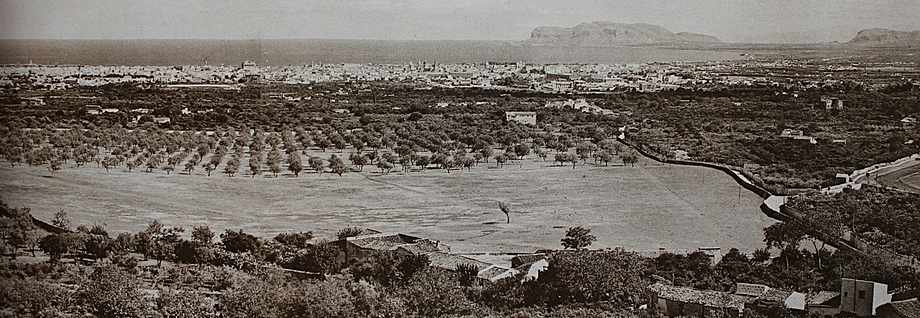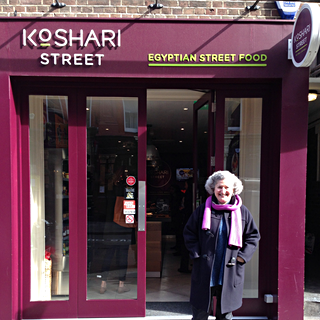I’m trying an experiment, sharing some things I find interesting via the email newsletter that announces each new episode. Here’s the first issue. Even if you’re already a subscriber to the podcast, via iTunes or your favourite podcatcher, you can still subscribe to the newsletter. And if there’s enough demand, I’ll create a separate mailing list.
A second helping of citrus in Italy Not a lemon, nominated for an award

Podcast: Play in new window | Download (Duration: 27:23 — 19.1MB)
Subscribe: Google Podcasts | Spotify | Android | RSS | More
 This episode is a repeat of one first published in October 2014, and the reason is that it has been nominated for a James Beard Foundation Award. I’m utterly thrilled by the news, and gratified that more people have downloaded episodes and subscribed to the show. Strangely (at least to me) the original did not see huge renewed interest, which is why I thought it worthwhile repeating. If you’ve heard it, and don’t feel like listening again, you could go and listen to one of the other two nominees, in the notes below.
This episode is a repeat of one first published in October 2014, and the reason is that it has been nominated for a James Beard Foundation Award. I’m utterly thrilled by the news, and gratified that more people have downloaded episodes and subscribed to the show. Strangely (at least to me) the original did not see huge renewed interest, which is why I thought it worthwhile repeating. If you’ve heard it, and don’t feel like listening again, you could go and listen to one of the other two nominees, in the notes below.
Being nominated is an immense honour. I won’t know whether I have actually won until the award ceremony on 24 April.
The original show notes:
Citrus, thanks to what writer Helena Attlee calls their great “suggestibility,” confound the botanist and the shopper alike. What is the difference between a clementine and a mandarin? That was one of the few questions I didn’t ask Helena Attlee when we met recently to talk about citrus in Italy, the subject of her new book The Land Where Lemons Grow. And not just lemons. Attlee writes beautifully about all the citrus and all of Italy, from Lake Garda in the north to Palermo in the south. She covers not merely the tendency of citrus to interbreed and mutate, but also history and economics, culture, cooking and organised crime. Through it all runs a continuous thread that links the very difficulties of growing citrus productively to the desirability of the finished products, on which fortunes and entire communities were built.
The Land Where Lemons Grow proves, as if it needed proving, that food provides a perfect lens through which to view the entire world, as a result of which I had to cut some choice sections from our conversation. That, however, has prompted me to try something new here, which will become apparent in a day or two as I also attempt to tidy up a bit here.
Notes
- More about Helena Attlee at her website
- The other award nominees are Gravy and The Feed.
- Intro music by Podington Bear.
Nominated

Of course, I knew that it was a possibility. That’s how the Awards work. You enter, and I thought, “nothing ventured, nothing gained”. To have gained an actual nomination is a surprise and a delight. Helena Attlee was probably my secret weapon, talking about Citrus in Italy.
It is honestly hard to express my delight and excitement.
A visit to Koshari Street An upmarket hole in the wall that serves couture street food

Podcast: Play in new window | Download (Duration: 17:39 — 16.7MB)
Subscribe: Google Podcasts | Spotify | Android | RSS | More
 Street food is big. Not just in places where eating on the street is the only place many people can afford, but in happening neighbourhoods around the rich world too. Burrito trucks, Korean barbecue in a taco, ceviche, you name it; all are available on the streets of London and Los Angeles, Sydney and San Francisco. They have strange exotic takes on porchetta on the streets of Raleigh, North Carolina, and pizza ovens parked in English railway station forecourts. In many neighbourhods you can barely move for falafels.
Street food is big. Not just in places where eating on the street is the only place many people can afford, but in happening neighbourhoods around the rich world too. Burrito trucks, Korean barbecue in a taco, ceviche, you name it; all are available on the streets of London and Los Angeles, Sydney and San Francisco. They have strange exotic takes on porchetta on the streets of Raleigh, North Carolina, and pizza ovens parked in English railway station forecourts. In many neighbourhods you can barely move for falafels.
One of the iconic street foods of Egypt – koshari – is now available in London, in a slightly upmarket hole in the wall place. I’ve always maintained that this podcast is not about happening restaurants or the latest groovy cocktails, but the chef who made Koshari Street happen happens to be a friend, so on a recent visit, I went to try for myself. And, of course, we talked about far more than the restaurant.
Notes
- Koshari Street is at 56 St Martin’s Lane, London, WC2N 4EA. And online
- Anissa Helou is also online and her book Mediterranean Street Food is still available.
- We were interrupted by Lauren Bohn, and she too has an online presence, although there’s not much evidence there of her interest in food.
An Italian wine education A recently minted sommelier tries to improve my understanding

Podcast: Play in new window | Download (Duration: 19:06 — 26.5MB)
Subscribe: Google Podcasts | Spotify | Android | RSS | More
 Drinking Italian wine anywhere — even in Italy — can be fraught with complications. Is that wine from the area in Piedmont known as the Langhe? Better not say so on the label, unless you have express permission to do so, or risk a fine. Labelling was one of the few topics I didn’t cover in an extensive conversation with Marco Lori, a sommelier who kindly agreed to be grilled. I’m somewhat in awe of people who seem really to know their wines, and so I took the opportunity to ask Marco to try and lift the veil. That he did, with great good humour. There is so much I don’t understand. Like, what exactly do wine people mean when they talk about the smell of green peppers in a wine? Try as I might, I just don’t get that. And the resurgence of natural wines. And I had no idea that careful winemakers go through the harvest bunch by bunch, selecting this one for their top-notch wine, that one for a slightly lesser version. So much to learn. So little time.
Drinking Italian wine anywhere — even in Italy — can be fraught with complications. Is that wine from the area in Piedmont known as the Langhe? Better not say so on the label, unless you have express permission to do so, or risk a fine. Labelling was one of the few topics I didn’t cover in an extensive conversation with Marco Lori, a sommelier who kindly agreed to be grilled. I’m somewhat in awe of people who seem really to know their wines, and so I took the opportunity to ask Marco to try and lift the veil. That he did, with great good humour. There is so much I don’t understand. Like, what exactly do wine people mean when they talk about the smell of green peppers in a wine? Try as I might, I just don’t get that. And the resurgence of natural wines. And I had no idea that careful winemakers go through the harvest bunch by bunch, selecting this one for their top-notch wine, that one for a slightly lesser version. So much to learn. So little time.
Notes
- Jeremy Parzen touched on the latest labelling madness on his website. Absolutely sweet winemakers, quoting Bob Dylan: “to live outside the law, you must be honest”.
- Marco Lori’s website is Off the Vine. Say I sent you; it might do us both some good.
- This is that wine I mentioned. I haven’t managed to find it for sale locally. Yet.
- Intro music by Cerys Matthews. I hope she doesn’t mind. I mean, I don’t mind her website playing music to me unbidden.